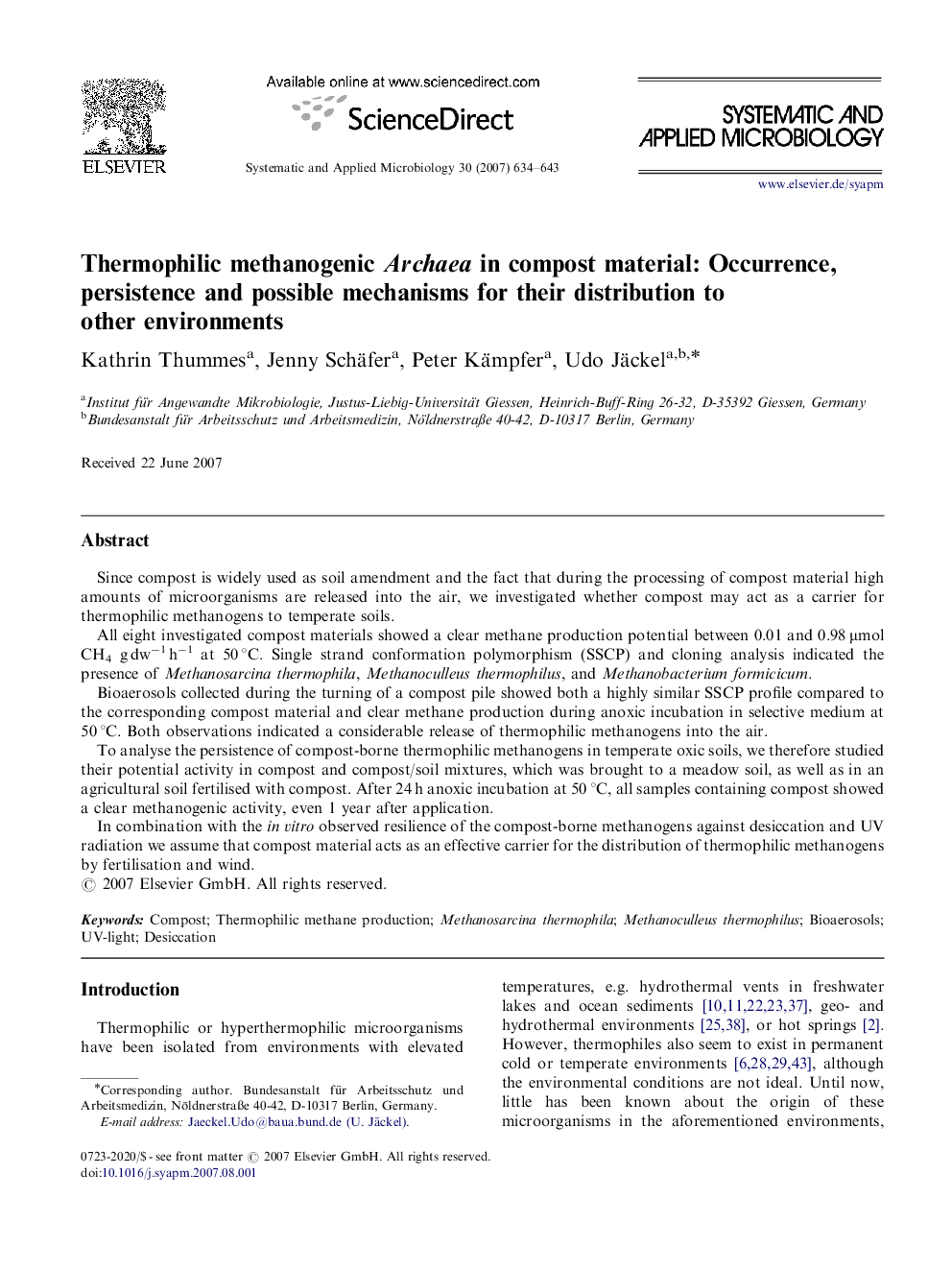| Article ID | Journal | Published Year | Pages | File Type |
|---|---|---|---|---|
| 2063371 | Systematic and Applied Microbiology | 2007 | 10 Pages |
Since compost is widely used as soil amendment and the fact that during the processing of compost material high amounts of microorganisms are released into the air, we investigated whether compost may act as a carrier for thermophilic methanogens to temperate soils.All eight investigated compost materials showed a clear methane production potential between 0.01 and 0.98 μmol CH4 g dw−1 h−1 at 50 °C. Single strand conformation polymorphism (SSCP) and cloning analysis indicated the presence of Methanosarcina thermophila, Methanoculleus thermophilus, and Methanobacterium formicicum.Bioaerosols collected during the turning of a compost pile showed both a highly similar SSCP profile compared to the corresponding compost material and clear methane production during anoxic incubation in selective medium at 50 °C. Both observations indicated a considerable release of thermophilic methanogens into the air.To analyse the persistence of compost-borne thermophilic methanogens in temperate oxic soils, we therefore studied their potential activity in compost and compost/soil mixtures, which was brought to a meadow soil, as well as in an agricultural soil fertilised with compost. After 24 h anoxic incubation at 50 °C, all samples containing compost showed a clear methanogenic activity, even 1 year after application.In combination with the in vitro observed resilience of the compost-borne methanogens against desiccation and UV radiation we assume that compost material acts as an effective carrier for the distribution of thermophilic methanogens by fertilisation and wind.
